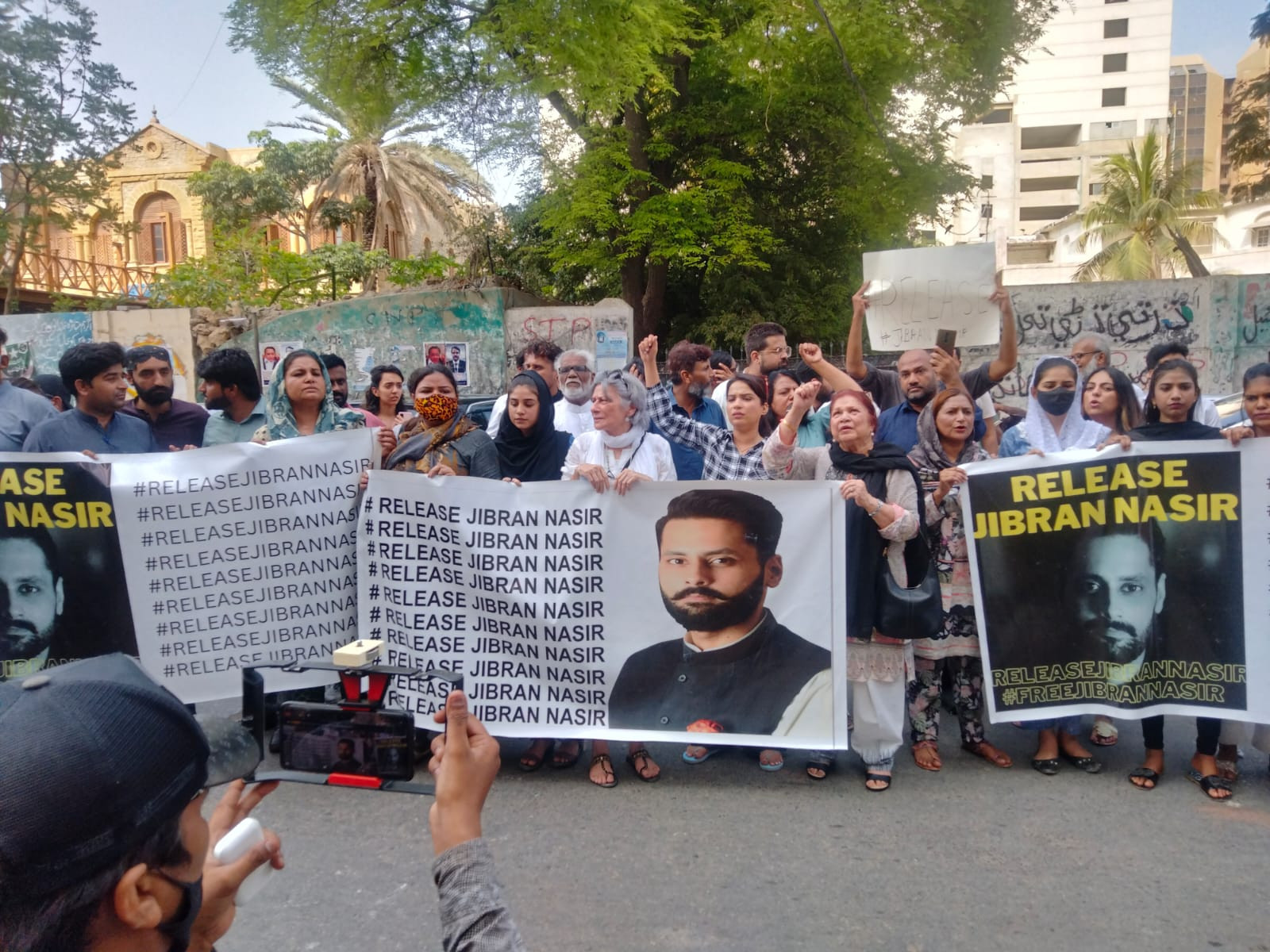
PHOTO: FILE
The words of Maulana Tariq Jamil
He commands a lot of sway over his supporters and such a degree of influence comes with certain responsibilities
Renowned religious scholar, Maulana Tariq Jamil, is currently in the news due to his controversial remarks about “immodest” women. In a telethon, organised by Prime Minister Imran Khan for raising funds to combat Covid-19, Maulana Tariq Jamil remarked that the pandemic was God’s punishment for society’s sins, such as lying, deceit and obscenity. If he had stopped here, perhaps such a controversy would not have arisen, but instead he went on to explain what he meant by obscenity. With his voice breaking down, he put the blame squarely on women and their immodesty.
“When Muslim daughters practice immodesty and the youth indulges in vulgarity, then Allah punishes such nations the way He punished the people of Lut ,” he said, further adding,
“Who is making my country’s daughters dance?”
To label these statements as being problematic is an understatement. Maulana Tariq Jamil directly blamed Pakistani women and their attire as one of the major reasons as to why a pandemic is affecting millions across the globe, including those countries where religious attire like the hijab is compulsory. Even if one assumes that this virus is indeed a result of the ills which plague society, the culprit according to Maulana Tariq Jamil are not those men who rape and sexually harass women and molest children, but instead are those women who in his eyes dress in an “immodest” manner.
We have to understand that in a society where misogyny is already deep-rooted and victim blaming extremely common, such statements, when couched in religious lingo by a figure of Maulana Tariq Jamil’s influence, assume extraordinary potency. In fact, more than the content of his words – after all, this kind of thinking is unfortunately common in our society – the fact that he said them is what makes his comments even more worrisome.
Maulana Tariq Jamil, after all, is not just another mullah but an individual who has, over the past few decades, attained a great deal of influence across every strata of Pakistani society. His influence is particularly strong amongst Pakistan’s urban middle-class, including its relatively ‘moderate’ sections. He also hobnobs with the powerful and the influential and the fact that Prime Minister Imran Khan requested him to offer a prayer in that telethon is a testimony to his influence in the upper echelons of power. And, above all, his social media following is second to no other religious figure in the country; and is composed of impressionable young men and women, many of who are fanatically devoted to him. This makes the situation extremely complicated because such followers, instead of questioning such utterances, either hurl abuses at Maulana Tariq Jamil’s critics or justify his statements through an apologetic defence.
The first type, largely composed of his young male followers, is fanatically devoted to him and is quite hardline. On Twitter, when some women criticised Maulana Tariq Jamil for his remarks, the kind of abuse which was thrown their way was truly shocking. This kind of a fanatical following makes it extremely difficult for anyone to question Maulana Tariq Jamil. The second type (those providing an apologetic defence), are somewhat moderate and their contention is that Maulana Tariq Jamil did not intend to only blame women and that his words have been taken out of context. Some of this lot is also saying that this was just a “one time” occurrence and therefore it would be extremely unjust to label him as a misogynist or sexist.
To be fair, Maulana Tariq Jamil has steered cleared of inciting sectarian hatred and has also tried to promote interfaith harmony. While these are laudable qualities, his views with regards to women are undeniably problematic. He may not have blamed women for natural disasters before, but he has often linked societal problems to women’s clothing. For instance, in one video he partially attributed the “bepardagi” of women as one of the reasons behind the Kasur incident. Yes, it is true that he also advises men to lower their gaze when interacting with women but, after watching his videos, one gets the sense that he still places the onus disproportionately upon women and their clothing.
Apart from this, there are dozens of videos in which he describes “hoors” in graphic detail in front of a captive male audience. The problem with such descriptions is that they oversexualise and objectify women and their bodies. Impressionable young men, after listening to such graphic descriptions, may subconsciously start thinking of women only as objects of pleasure. While one can argue that what Maulana Tariq Jamil is describing is going to happen in the afterlife and has no connection with the real world, the fact is that such descriptions do influence mens’ patterns of thinking. Moreover, the immense emphasis on the beauty of the “hoors” inadvertently sets impossible beauty standards for women who are already under extraordinary pressure to look a certain way due to society’s lopsided beauty ideals. In fact, in another viral video, Maulana Tariq Jamil can be heard referring to African women in racist terms, and saying how they will become “beautiful” once they enter paradise.
His defenders argue that the real purpose behind such sermons is to control mens’ desires by showing them a glimpse of the “rewards” they can attain in the afterlife. Frankly, I doubt this method is serving its purpose and, as discussed, is making some men think of women only in sexual terms.
After facing some backlash (which was limited compared to the outpouring of support for him), Maulana Tariq Jamil “apologised”. Although this is a good gesture, his choice of words still leaves a lot to be desired. It serves as a general and vague apology aimed at all those whom he had “inadvertently” hurt. He should have been clearer and more candid in his apology and said that he does not blame women and their clothing for the pandemic. He has to understand that he commands a lot of sway over his supporters and such a degree of influence comes with certain responsibilities.




COMMENTS
Comments are moderated and generally will be posted if they are on-topic and not abusive.
For more information, please see our Comments FAQ